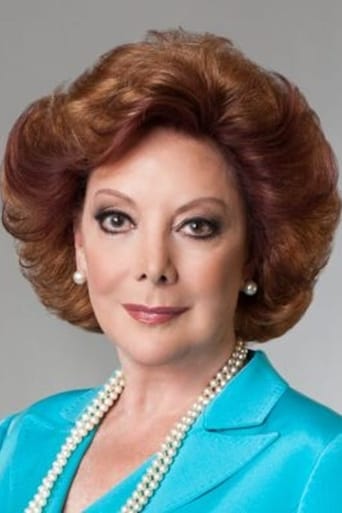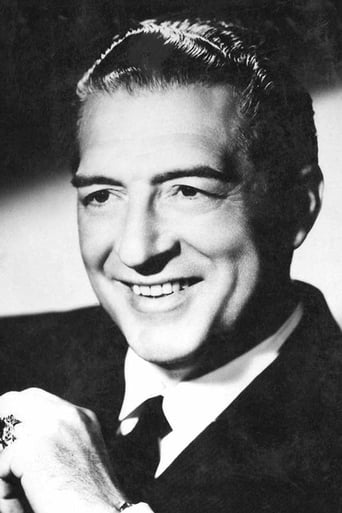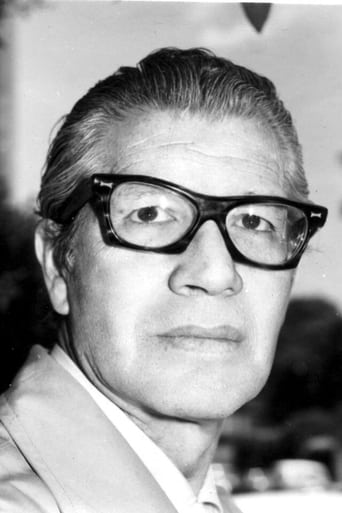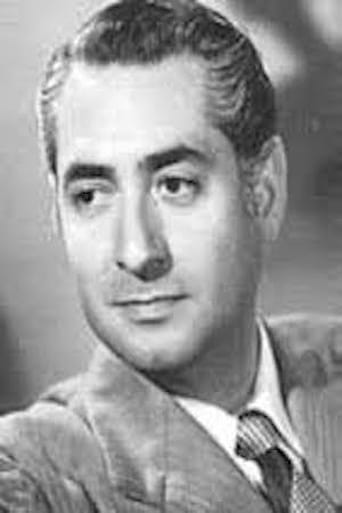Jackson Booth-Millard
Directed by Luis Buñuel (Land Without Bread, Viridiana, Belle de Jour, Tristana, The Discreet Charm of the Bourgeoisie), this Spanish film featured in the book 1001 Movies You Must See Before You Die, I hoped along with the positive reviews I read it would be deserved. Basically wealthy society couple Señor Edmundo Nobile (Enrique Rambal) and his wife Lucía (Lucy Gallardo) invite a group of twenty friends for formal dinner, following an evening at the opera, at their lavish mansion in Mexico City. The house servants one by one are called away or for various reasons leave the estate, and after dinners the guests adjourn to the music room where guest Blanca (Patricia de Morelos) plays the piano, and later when they may normally return home, the guests remove their jackets, loosen their gowns and settle down for the night on couches, chairs and the floor. In the morning, for an unknown reason, it is apparent they are trapped in the music room, not physically but psychologically, unable to leave the guests consume what little water and food they can find from the previous night's party. Days go by, the plight for the guests becomes intense, they quarrel, become hostile and hysterical, only Doctor Carlos Conde (Augusto Benedico) manages to keep his cool and with logic and reason guides the guests through the ordeal. Elderly guest Sergio Russell (Antonio Bravo) dies, his body is placed in a large cupboard, later a young couple due to be married, Beatriz (Ofelia Montesco) and Eduardo (Xavier Massé), lock themselves in a closet and commit suicide. Meanwhile the guests manage to find a water source, breaking through the wall and a water pipe, several sheep and a bear break loose from their bonds and find their way into the room, the sheep are taken and slaughtered and roasted. Dr. Conde reveals to Nobile that Leonora (Bertha Moss), one of his patients, is dying of cancer, a secret supply of morphine is used keep her fit, but the drugs are stolen by brother and sister Francisco (Xavier Loyá) and Juana (Ofelia Guilmáin). One of the guests Ana Maynar (Nadia Haro Oliva), a Jew and a practitioner of Kabbalah, fails to free the others performing a mystical ceremony. Eventually, Raúl (Tito Junco) suggests Nobile is responsible for their predicament and must be sacrificed, only Dr. Conde and noble Coronel Alvaro (César del Campo) oppose the angry mob, Nobile offers to take his own life, but then young foreign guest Leticia 'La Valkiria' (Silvia Pinal) sees everyone is in the same position as when it all began. On the instructions of Leticia the group reconstruct the conversations and movements from the night of the party and discover they are free to leave the room, local police and the servants are gathered outside the manor, they found themselves similarly unable to enter. To give thanks for their rescue, the guests attend a ceremony at the cathedral, when the service is over, the churchgoers and the clergy find that they are trapped, it is unclear if those trapped in the house before are now trapped again. The house guests seem to have disappeared, the situation is the church is followed by a street riot and the military step in, the last scene sees a flock of sheep entering the church, and the sound of gunshots. Also starring Jacqueline Andere as Alicia de Roc, Luis Beristáin as Cristián Ugalde, Claudio Brook as Julio the Steward, Rosa Elena Durgel as Silvia and Enrique García Álvarez as Alberto Roc. I admit the first twenty minutes or so I was gripped, it was just simply the gentle upper class party atmosphere, but once you realise the guests are trapped with seemingly no way out, becoming almost crazed and retracing their steps to solve the problem, it does become interesting, there were some stand out and chilling moments, overall it was a satisfyingly darkly comedic in part satirical drama. Good!
gavin6942
The guests at an upper-class dinner party find themselves unable to leave.Following the Viridiana scandal, Buñuel returned to Mexico, but kept his production team and decided to make another movie starring Silvia Pinal. The film, originally called The Outcasts of Providence Street, was renamed The Exterminating Angel after Buñuel picked it from an unfinished play his friend José Bergamín was writing at the time. The film was released in Mexico in 1962, and was just as controversial as its predecessor had been.Bunuel is a strange guy. Of course, he always was, really making his name on such crazy projects as "Un Chien Andelou" and "Age D'Or". In his later years, he seemed to really switch to a more Marxist outlook and was quick to satirize class and religion. Here he does that well. I would not say this is my favorite of his films, and possibly not top three, but it still deserves to be seen.
Vibhor Pandey
Another brilliant surrealistic work by Brunel, Though the plot is somewhat similar to Jean Paul Satre's existentialist play No Exit. This film is a rare fusion of black comedy, struggle and brutality. It is a commentary on the upper-class. A series of extraordinary and bizarre events takes place over the course of ninety-three minutes which leaves the viewers flummoxed. A group of people attend a formal party and when the party is over the unexpected happens, They can't seem to exit, for no perceptible reason. The scenes are full of campy humor, as all the guests are unable to go out of the drawing room. They stay there for another night and many nights after that. But as the basic necessities disappeared their mood became tempestuous and desperate. Illness started to spread, The group started disintegrating.Brunel cleverly shows that people no matter how high their status is in the society hides a beast within. Under dire circumstances the wealthy behaves like animals. The satisfaction of basic needs which they always took for granted becomes supreme for them, The sense of decency fades away. All the greed, lust and selfishness becomes glaringly evident on their hypocrite faces."Hell is other people" was the concept behind Jean Paul's play though this movie follows the concept that Hell is more than just other people. To know what it is you'll have to watch this movie!
bobsgrock
Is there any hope for the future of mankind? Fifty years ago, famous Surrealist director Luis Bunuel pointed his acerbic finger at the upper class in this incredibly focused satire of the bourgeois. Such a story as this depends on the audience's ability to look past little details such as a lack of growing facial hair on the men stuck in the living room and accept everything Bunuel throws at us.It seems the most vicious attacks are saved for the Church, which Bunuel seems to view as having similar rules and restrictions as the bourgeois does but with the added promise of eternal salvation in the afterlife. The final sequence of this film is powerful in the way it showcases the bourgeois's almost complete indifference to the struggle and pain of others, even after they have suffered similar conditions. Perhaps the main reason for this film's lasting impact, and the beginning of a whole new career for Bunuel, is its completely unflinching look at what lies at the root of all human beings. In taking away their physical freedom and psychological dressings, Bunuel exposes these people for what he believes we really are: slightly more intelligent, but still animals in every other sense. Our inevitable decline into savagery, incivility and pure selfishness can only be exposed in the most extreme conditions. However, who is to say this isn't possible in some distant future?







